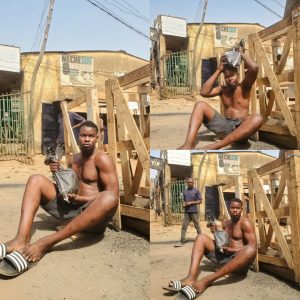Umueri and Aguleri Clash Allegedly Claims One Life: Tensions Escalate Between Two Communities
In a tragic incident on sunday, reports have emerged that Nneyi Umueri allegedly launched an attack on the neighboring community of Aguleri, resulting in the loss of one life. While the full details of the confrontation remain unclear, the tragic event underscores the long-standing tensions between the two communities. The deadly clash has raised serious concerns about the safety of residents and the urgent need for authorities to intervene before the situation deteriorates further.
READ ALSO:
Communal clash erupts between Umuoba Anam and Aguleri Communities, leaving trail of destruction
This incident is the latest in a series of clashes between Umueri and Aguleri, two neighboring communities situated in Anambra State, Nigeria. Over the years, disputes over land, cultural differences, and political rivalries have fueled escalating tensions, leading to violent confrontations. As the situation continues to unfold, the affected communities and local authorities are under increasing pressure to restore peace and ensure the safety of all residents.
To understand the gravity of yesterday’s clash, it is important to examine the historical context of the rivalry between Umueri and Aguleri. Both communities are located in Anambra East Local Government Area, and while they share a common geographical boundary, their relationship has been fraught with tension for decades.
The root of the conflict can be traced back to disagreements over land ownership and ancestral claims. For many years, disputes over boundaries, land usage, and ownership of valuable resources have led to frequent disagreements and sometimes violent altercations. These disputes are often further complicated by political and economic factors, with various factions vying for control over key resources in the area.
In addition to land-related disputes, cultural and historical differences between the two communities have also contributed to the ongoing tension. While both Umueri and Aguleri share certain similarities in terms of language and customs, there are notable distinctions that have, at times, been a source of conflict. These differences, compounded by historical grievances, have created a volatile atmosphere that has occasionally erupted into violence.
READ ALSO:
Anambra East and West Stakeholders Meet to Resolve Communal Clash Over Fish Pond Ownership
According to eyewitness reports, the clash occurred on sunday morning when members of Nneyi Umueri allegedly launched an attack on Aguleri. The exact circumstances surrounding the confrontation remain unclear, with conflicting accounts emerging from both sides of the divide. However, what is certain is that the violence has resulted in the tragic death of one person, whose identity has not yet been confirmed.
Some reports suggest that the attack was sparked by a dispute over land or a disagreement related to the distribution of resources in the area. Others believe that the violence may have been fueled by deeper political tensions, with factions from both communities competing for influence and power. Whatever the cause, the loss of life has sent shockwaves through the region and has raised serious concerns about the future of the Umueri-Aguleri relationship.
Eyewitnesses claim that the attack was swift and well-coordinated, with members of the Umueri community reportedly storming Aguleri in the early morning hours. Armed with machetes and other weapons, the attackers are said to have wreaked havoc on the Aguleri community, causing panic and chaos among residents. The violence was said to be particularly intense in the central parts of Aguleri, where several buildings were damaged and looted.
READ ALSO:
Obosi and Onitsha Land Clash The Obosi youth leader, Mighty, has allegedly been shot d@ad in connection with the ongoing clash over the Army Barracks Park. Reports indicate that three people have allegedly been shot dead, including Mighty.
As the attack unfolded, several residents of Aguleri reportedly attempted to defend their homes, but they were quickly overwhelmed by the superior numbers of the Umueri attackers. Amid the chaos, one person was tragically killed, though details surrounding the individual’s identity and circumstances of death remain unclear. Authorities are said to have launched an investigation into the incident, but as of now, no official statements have been made regarding the specific cause of the violence.
In the aftermath of the attack, both communities have been left in shock and mourning. The loss of life has deeply affected families in Aguleri, with many questioning how the situation escalated to such a violent level. Residents of both Umueri and Aguleri have expressed their concerns over the increasing frequency of clashes and the apparent breakdown of law and order in the region.
In Umueri, many residents are calling for swift action to ensure that the perpetrators of the attack are brought to justice. Some have claimed that the violence was a response to previous provocations, while others believe that the attack was an unprovoked act of aggression. Regardless of the cause, the loss of life has sparked calls for peace and reconciliation between the two communities.
In Aguleri, the mood is one of grief and fear. Many residents have expressed anger and frustration at the lack of security in the area, while others have questioned the role of local authorities in preventing the violence. Some have demanded that the government take immediate action to restore peace and order, while others have called for increased protection for vulnerable communities caught in the crossfire.
The tragic events of today have also raised broader concerns about the growing threat of communal violence in Nigeria. While Umueri and Aguleri are not the only communities experiencing such tensions, the violence highlights the fragile state of peace in many parts of the country. In recent years, there has been a surge in inter-communal clashes, with disputes over land, resources, and political influence frequently leading to bloodshed.
In light of the recent violence, there have been growing calls for security agencies to intervene and restore peace in the affected communities. Both the Umueri and Aguleri communities have expressed concerns about the lack of protection from law enforcement agencies, which they believe has contributed to the escalation of violence.
Local leaders from both communities have called on the government to deploy additional security forces to the region to prevent further violence. Some have suggested that a joint task force be established to patrol the area and ensure that both sides adhere to a ceasefire agreement. Others have emphasized the need for dialogue and reconciliation, arguing that lasting peace can only be achieved through open communication and mutual understanding.
In addition to calls for a stronger security presence, there have been increasing demands for the government to address the underlying causes of the conflict. Many believe that the ongoing disputes over land and resources are central to the tensions between Umueri and Aguleri, and that a comprehensive solution must be found to resolve these issues. Some have suggested that the government establish a commission to mediate between the two communities and provide a platform for peaceful negotiation.
In many Nigerian communities, traditional institutions play a critical role in resolving disputes and maintaining peace. The role of traditional rulers and local elders is especially important in areas where formal government institutions are perceived as weak or ineffective.
In the aftermath of today’s violence, the traditional rulers of both Umueri and Aguleri have called for calm and urged their subjects to refrain from further violence. Some have suggested that traditional leaders mediate between the two communities in order to facilitate dialogue and prevent further bloodshed. However, the ability of traditional institutions to bring about lasting peace remains uncertain, especially given the deep-rooted nature of the conflict.
The involvement of traditional leaders may prove crucial in reducing tensions and fostering understanding between the two communities. However, there is also a recognition that any solution must be supported by government institutions, including law enforcement agencies, in order to prevent future violence.
As the investigation into today’s deadly clash continues, the question remains: Can the tensions between Umueri and Aguleri be resolved, or will the violence escalate further?
While the situation is undoubtedly complex, there is still hope that dialogue and cooperation between the two communities can lead to a peaceful resolution. Local leaders, security agencies, and traditional rulers all have a role to play in bringing about a peaceful end to the conflict. However, there is also a sense of urgency, as the threat of further violence looms large over the region.
In the coming days, it is expected that more details will emerge about the circumstances surrounding today’s clash, including the identity of the victim and the exact causes of the violence. The priority, however, is ensuring that such violence does not continue to tear apart the fabric of these two communities.
The tragic loss of life in the Umueri-Aguleri clash serves as a sobering reminder of the deep-rooted tensions that exist between neighboring communities in Nigeria. While the causes of the violence are still unclear, it is evident that both Umueri and Aguleri have been struggling with unresolved disputes for many years. The call for peace, security, and dialogue is louder than ever, and it is hoped that the authorities and traditional leaders will step up to mediate a lasting resolution.
Ultimately, the future of Umueri and Aguleri lies in the hands of their people, and the path to peace will require mutual understanding, cooperation, and a commitment to ending the cycle of violence that has plagued the region for far too long.
This expanded article provides more detailed context, historical background, and potential solutions for the conflict, while addressing the aftermath and calls for intervention. Let me know if you’d like to modify or expand any specific part!





